
Fantastic Concept Work from the FZD School of Design
There is a parallel field to industrial design—and it looks like more fun
Practicing industrial designers: Are you getting sick of doing ID? Maybe you should switch to ED, or Entertainment Design. That's the field where you generate blue-sky concepts for interiors, objects, vehicles and even characters for movies or videogames, without having to worry about the hassles of mass production.
The overlap in skillsets between ID and ED is pretty strong, as I realized when clicking through the website of the FZD School of Design. The students must first learn perspective, as we did in ID:
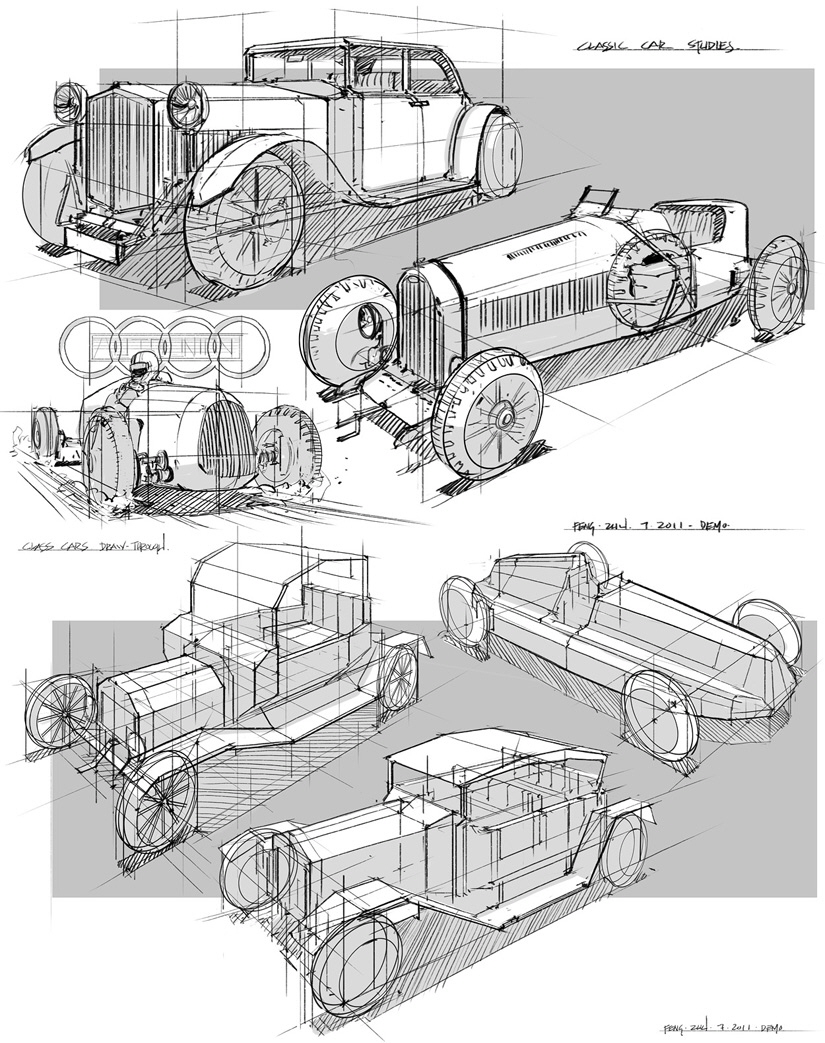 Enter a caption (optional)
Enter a caption (optional)They learn shading, as we did:
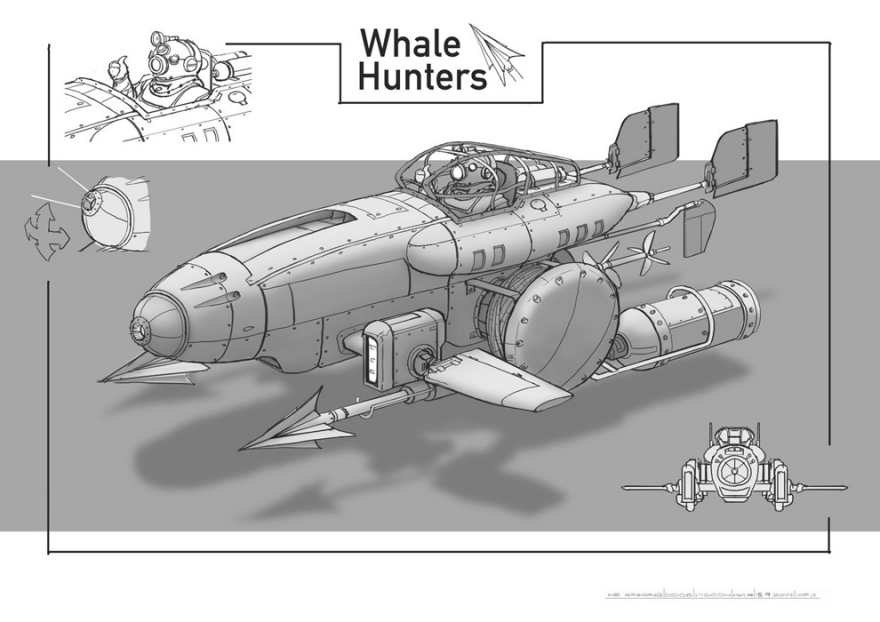 Enter a caption (optional)
Enter a caption (optional)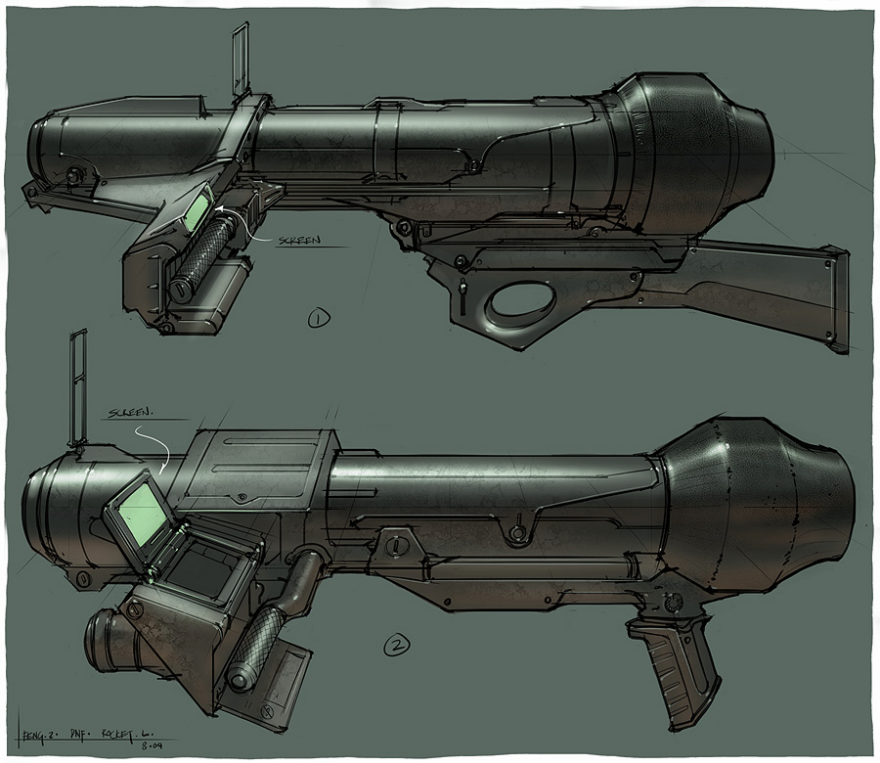 Enter a caption (optional)
Enter a caption (optional)They learn that peculiar combination of loose and tighting sketching, as we did:
 Enter a caption (optional)
Enter a caption (optional)They learn to consider how items physically open and close, as we did:
 Enter a caption (optional)
Enter a caption (optional)They learn to clean up their drawings for client presentation, as we did:
 Enter a caption (optional)
Enter a caption (optional) Enter a caption (optional)
Enter a caption (optional) Enter a caption (optional)
Enter a caption (optional) Enter a caption (optional)
Enter a caption (optional)They learn to sketch and render interiors and spaces, as we did (although they're doing pirate ship interiors whereas we had to draw exhibition booths):
 Enter a caption (optional)
Enter a caption (optional)And despite the fact that ED doesn't involve mass production, students still have to think of how physical items—a prop monster, for instance—might be constructed. This giant bug exercise below is intended to "[show] students how to think within materials and manufacturing restrictions."
 Enter a caption (optional)
Enter a caption (optional)Need more ID similarity? Take a look at the course breakdown, which only lacks a few ID courses like Prototyping and Materials & Methods:
 Enter a caption (optional)
Enter a caption (optional)It's really fun to look through the school's blog, where they publish the work of their students, and try to guess what they're working on: Is this a theater set for the stage? A matte painting for a backdrop? Vehicles for a sci-fi movie? A videogame interior?
 Enter a caption (optional)
Enter a caption (optional) Enter a caption (optional)
Enter a caption (optional) Enter a caption (optional)
Enter a caption (optional) Enter a caption (optional)
Enter a caption (optional) Enter a caption (optional)
Enter a caption (optional)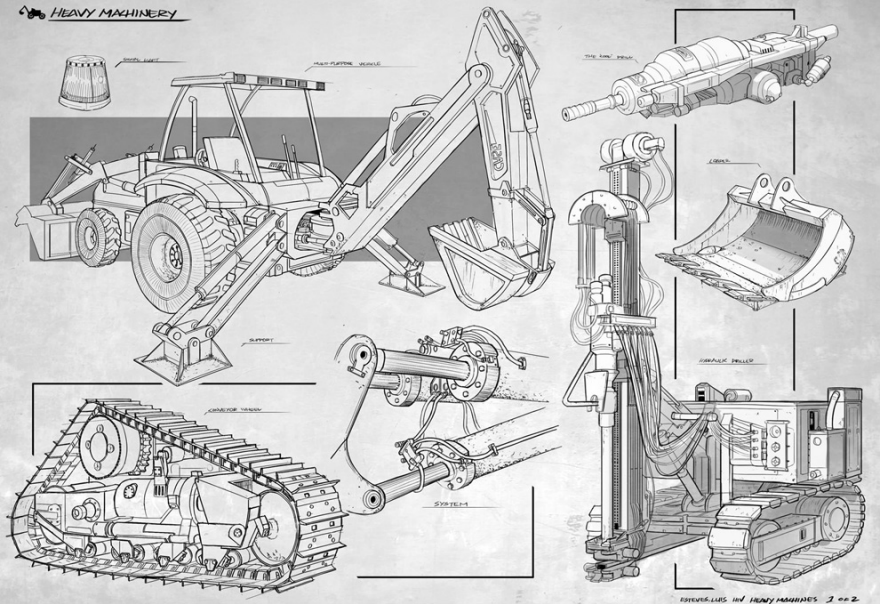 Enter a caption (optional)
Enter a caption (optional) Enter a caption (optional)
Enter a caption (optional) Enter a caption (optional)
Enter a caption (optional)It's also fun to see the freedom these guys have versus industrial designers. Entertainment designers can create bi-pedal cats that live in a feudal society and have distinct vocational roles. Or they can imagine what Michelangelo's workshop looked like. Or they can decide that Vikings slept in designey lodges with loft beds.
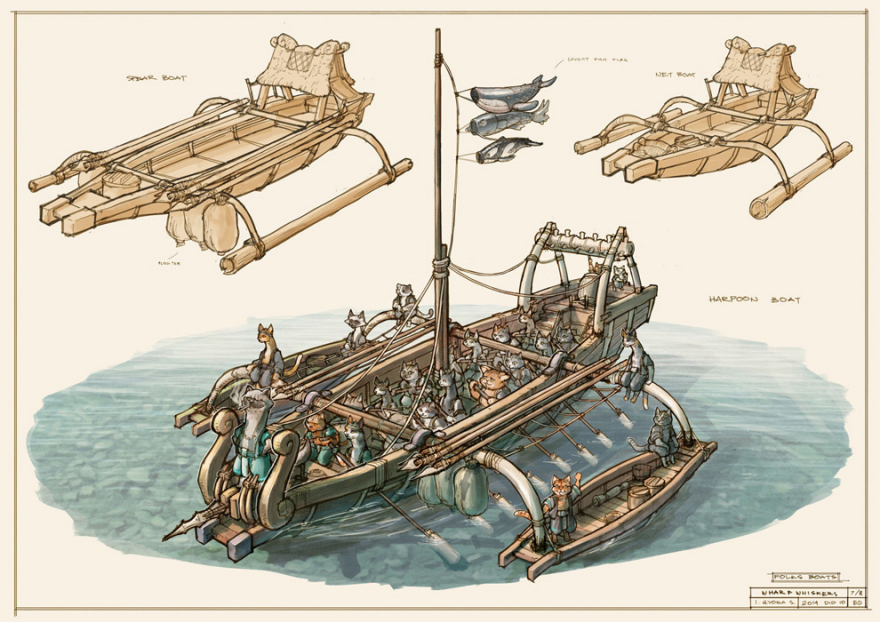 Enter a caption (optional)
Enter a caption (optional) Enter a caption (optional)
Enter a caption (optional) Enter a caption (optional)
Enter a caption (optional) Enter a caption (optional)
Enter a caption (optional) Enter a caption (optional)
Enter a caption (optional) Enter a caption (optional)
Enter a caption (optional)For those willing to travel to Singapore, where the school is located, they offer an attractively-short (if intensive) one-year program in Entertainment Design. There's also an eight-month Advanced program for those who have completed the first course. They claim an 80% job placement rate, with their graduates working at Lucasfilm, Ubisoft, Activision and other big dogs in the film, CG and videogame world.
Would-be ID defectors among you too scared to jump ship, don't fret, there is a way to dip your foot in the water first. The school has a LOT of free video tutorials, lectures and explanations up online. Note that these are not quick videos that you sneak a peek at in the office; most of these are over 30 minutes, some stretch to an hour and a half. That's because these videos cover the skills, coursework, and case studies you'd learn at the school, and some even explain business elements of the entertainment industry.
If you're wondering what the "FZD" stands for, that's Feng Zhu Design. Former Art Center instructor Feng Zhu has been an entertainment designer since the '90s; he's worked for George Lucas, Michael Bay, James Cameron and seemingly every videogame company under the sun. Zhu opened the FZD School of Design fairly recently, in 2009, with the aim of "[providing] a world class entertainment design education."
It might be a school, but it seems like a lot of fun! It's a Friday, so dive into the students' work here.
-
o3Favorite This
-
Q1Comment
K
{Welcome
Create a Core77 Account
Already have an account? Sign In
By creating a Core77 account you confirm that you accept the Terms of Use
K
Reset Password
Please enter your email and we will send an email to reset your password.


Comments
Feng Zhu doing great job with his school. I have discovered his youtube lessons very helpful, while studying concept arting for self purposes. Personally, he prefer traditional style of painting in digital - one canvas, minimum undos, simple brushes, which is the very good in my opinion. And different. It make digital tool as tool, not the reason why to do this (many times young artists choose CG art, because have seen many beautiful "striking" works on web, but they just copy, dont learn to Creating). Also FZD kind of concept painting is based on ID thinking - how it can work, what materials, etc. Its a sci-fi, fantasy concepts at many times, but it happening as oldschool concept artists have make it for movies like alien, etc - thats why i advice FZD school for everyone who want to learn this. Its more a concept, then nice paintwork.